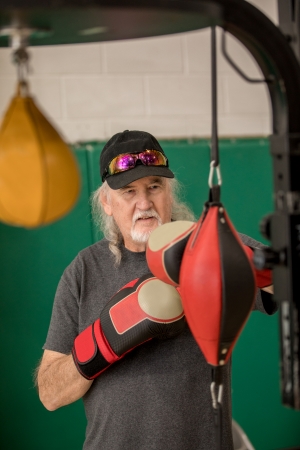
“Dad, I think you might have Parkinson’s.”
These were the words Steve’s daughter, who works as a nurse, said to him nine years ago while on a family vacation. Steve had noticed he was moving a bit slower but attributed it to natural aging. When his daughter pointed out that he was walking differently and that his arm failed to swing naturally, he made an appointment to see his primary care doctor. He was referred to a neurologist and a series of evaluations confirmed that he had Parkinson’s.
A diagnosis with lifelong impact
Parkinson’s disease is a progressive, neurological condition that affects nearly 10 million people worldwide[1]. The exact cause is unknown, and common symptoms can include stiffness, slowness and tremors associated with a decrease of dopamine in the brain[2].
Steve and his wife were planning a location to spend their retirement when he received his diagnosis. They would now have to factor in his health care needs.
“Originally, we thought about moving out West, but decided instead to relocate to Kentucky to be closer to family,” said Steve. “This was the first big decision Parkinson’s played a role in.”
Moving from medication to a medical device
Another big decision centered around Steve’s treatment plan. At first, he managed his non-motor symptoms with medication, but after some time, he developed a minor tremor. The effects of the medication began dictating how he spent his days. At certain times of the day, he had to pause all activity due to the medication leaving him feeling tired and drowsy.
During one of his non-contact boxing classes designed for people with Parkinson’s, someone mentioned deep brain stimulation (DBS), a procedure in which a small device is implanted in the brain to produce signals that can help improve motor function and reduce tremor, slowness and stiffness. He talked about DBS therapy with his doctor at next appointment and learned that he would be a good candidate. He also spoke with other patients, attended information seminars and spent his time researching DBS online, and ultimately made the decision to undergo treatment with the Vercise Genus™ DBS System.
“Finding the right treatment approach is an essential part of managing the effects of Parkinson’s disease,” said Abigail Rao, M.D., Norton Neuroscience Institute and Steve’s neurosurgeon. “For some, interventional solutions, like the FDA-approved Vercise DBS System, can minimize Parkinson’s symptoms and offer a better quality of life.”
Today, Steve is feeling better and often meets with other PD patients and caregivers who are considering DBS as a treatment option. With the flexibility his DBS system offers, he is enjoying retirement, spending time with his family and maintaining an active lifestyle*.
“I knew I’d be living with Parkinson’s and its symptoms,” said Steve. “But now I don’t feel like the condition makes decisions for me.”
Learn more about Parkinson’s disease and deep brain stimulation (DBS).
*Results in other cases may vary.
As all medical procedures include potential risks, consult with a physician to understand such risks and potential benefits.